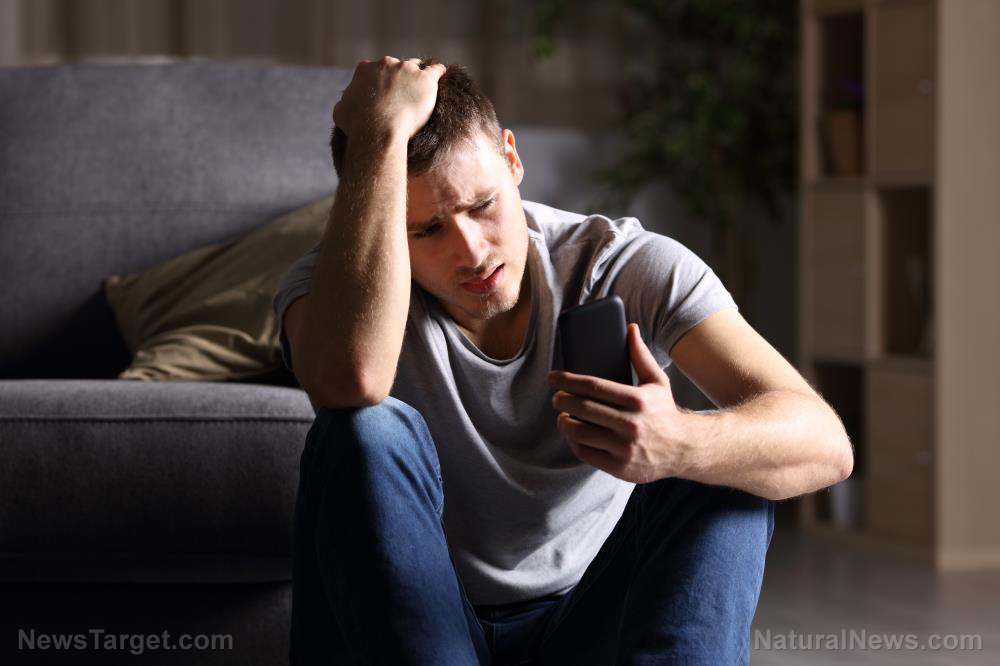Learn about brain health and nootropics to boost brain function
Is social media addiction a new type of psychiatric condition?


(Natural News) When people say that they’re “addicted” to Facebook or social media, is it the same thing as being addicted to drugs or alcohol?
According to estimates, the number of social media users around the world can skyrocket from almost a billion in 2010 to over three billion by 2021. Out of all the social networking sites (SNS), Facebook is at the top of the list, with almost a whopping 2.2 billion active users monthly.
It’s not just kids on Facebook, though. Even adults spend 50 percent more time on Facebook daily. But why is everyone drawn to social media?
It can be that many people feel socially insecure. There’s even a term for that need you feel to constantly check your social media accounts: “FOMO,” or the “fear of missing out.”
FOMO often motivates social media users to stay online and refresh their feeds so they don’t miss what everyone else is doing. Being able to like, share, and comment, on a friend’s posts gives most Facebook users the feeling that they’re interacting. However, this is only a poor equivalent of real-life interactions with a lot of filters to hide the not-so-appealing aspects of your life. (Related: Founder of Virtual Reality warns we should all DELETE all social media accounts to avoid “mass human behavioral engineering.”)
Virtual interaction comes at a price, and it could be your gradual addiction to social media. Sean Parker, the founding president of Facebook, even admitted that this was the company’s goal from the beginning. Parker explained that Facebook’s earliest mission was to “consume as much of your time and conscious attention as possible…”
Mother Nature's micronutrient secret: Organic Broccoli Sprout Capsules now available, delivering 280mg of high-density nutrition, including the extraordinary "sulforaphane" and "glucosinolate" nutrients found only in cruciferous healing foods. Every lot laboratory tested. See availability here.
Back in November 2017, Parker admitted his former company’s agenda at the Axios conference. He said the Facebook founders were intentionally exploiting “a social-validation feedback loop” which takes advantage of the “inherent vulnerabilities in human psychology.”
In the early 2000s, members of the psychiatric profession were alarmed at the number of young people, mostly middle-class boys, who were addicted to internet gaming. Parents also expressed their concern about this kind of disturbed behavior and even the declining health of their children.
The symptoms of Internet gaming addiction (IGA) are worrisome:
- Anxiety and depression
- Change in complexion/pallor
- Changes in sleep patterns
- A decline in interest in outside activities
- Distorted perception of time
- Guilt and obsessive behavior
- Increased bouts of illness
- Social withdrawal
- Weight loss
Even though IGA isn’t an official psychiatric condition, a child with these symptoms is unhealthy and isn’t developing normally. IGA also alters brain wave patterns the same way other addictive disorders (e.g. alcohol and drug addictions) do.
Internet Addiction (IA), defined as “problematic or pathological use of the internet” is another non-recognized but common social disease. Spending more time on online networks instead of with real-life social groups is associated with higher levels of “loneliness, depression, academic, social, and occupational impairment, and suicide ideation.” Instead of connecting people, technology is making them lonelier than ever.
Are you addicted to social media?
Experts agree that the overuse of Facebook and other social media networks is a problem that must be dealt with. Back in 2012, a team of Norwegian researchers developed the Bergen Facebook Addiction Scale that asks six basic questions related to your Facebook use.
If you scored highly on the Bergen Facebook Addiction Scale, you can try a digital media detox to help you curb your need to be online all the time.
Here are some tips that you can try if you’re about to go on a digital media detox:
- Put your smartphone on Airplane mode at the same time every night.
- Commit to staying offline.
- Take a walk in the park and enjoy the beauty of nature.
- Try a new (real-life) hobby or learn how to play an instrument.
- Spend time with family and friends, and enjoy every moment without taking a selfie.
Go on a digital media detox whenever you can to avoid obsessing over the number of likes, comments, or followers on your social media accounts.
You can read more articles about the dangers of social media addiction and how to prevent it at Addiction.news.
Sources include:
Click here to view full article